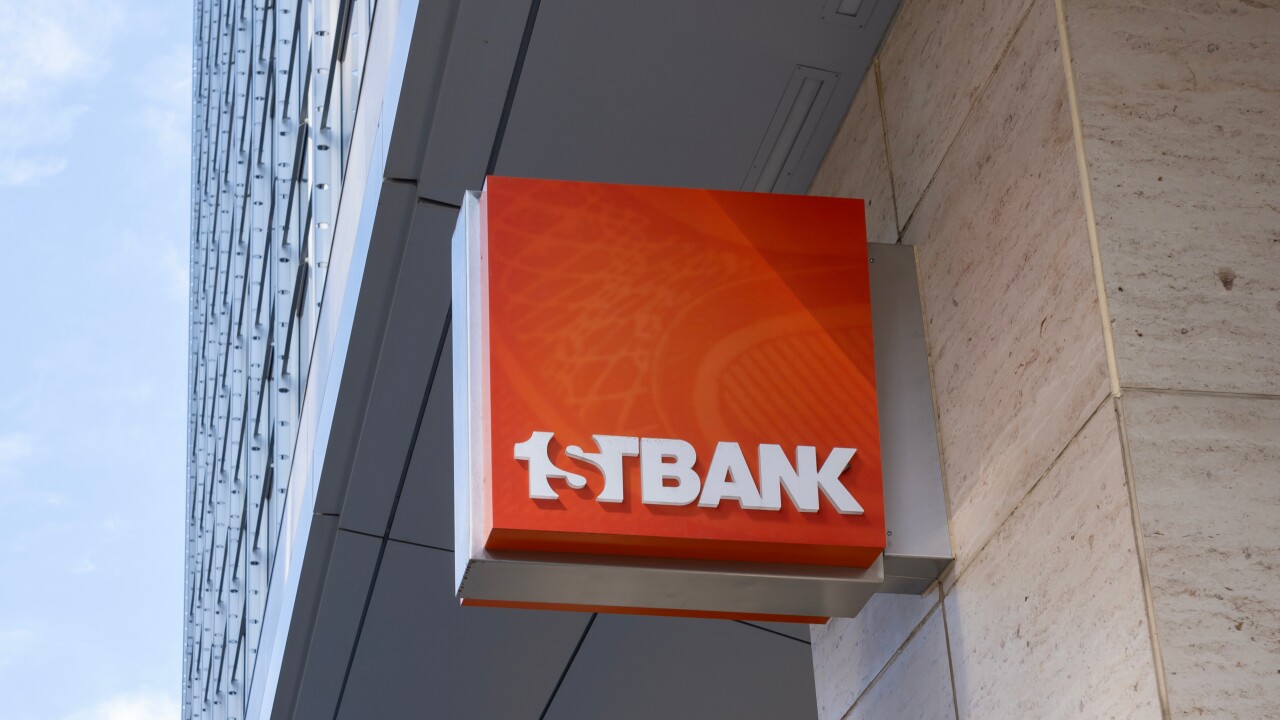Apple's plan to launch Apple Pay in the U.K. with the support of a solid number of issuers came as no surprise except for the omission of Barclays, the leading issuer and acquirer in the country.
Apple is notorious for driving a hard bargain, and several bankers in the U.S. have been outspoken about its
"Theres been a lot of talk about when and if Barclays will cave to Apple Pays terms," said Parker Crockford, vice president of sales and marketing at Judo Payments, a European payment services provider that is part of Apple Pay's July launch in the U.K.
Without Barclays buy in, consumers with Barclay's cards won't be able to put those cards in the mobile wallet. And merchants that work with Barclays as their acquiring bank wonder whether theyll be able to accept Apple Pay. Representatives from Barclays did not respond to inquiries for this story by deadline.
Lui Zurawski, solutions practice lead of consumer payments for Europe, the Middle East and Africa at ACI Worldwide, says Barclays might be holding out to evaluate the rest of the market, since Apple Pay has increasing competition from Samsung Pay and Android Pay, as well as European offerings like Orange Cash.
Apples rumored fees in the U.S. would likely not appeal to a U.K. bank because there is less fee income to go around; interchange in the U.K. is capped at 0.2% for debit transactions and 0.3% for credit card transactions.
Overall, transaction fees might be facing disruption as a result of the shift to mobile payments.
For in-app payments within Apple Pay, the verification process allows those card-not-present transactions to be considered protected by 3D Secure, which drives down the interchange rate. This will encourage adoption even among merchants who have resisted 3D Secure because the user experience isnt mobile friendly, Crockford said.
In-app...will have a more profound impact on the way people spend in the future...even at the physical point of sale, said Zurawski. Consumers will start to think: Why do I need to waggle this phone by this expensive point of sale device and not just do an in-app payment and walk out of the store with the goods?
Even without Barclays, Apple has made many key partnerships in the U.K. Judo Payments is an example. The company has spent the past three years developing software development kits (SDKs) to help merchants offer native in-app card payments. One of Judo's clients in particular, Harris+Hoole, the coffee chain owned by
For its part, Apple is working to make Apple Pay an option for more merchants, such as by promoting
Judo Payments went through some hoops to become an Apple partner, Crockford said, including making sure its SDK could handle a number of different transactions with Visa, MasterCard, American Express and also Apple Pay itself. Plus, it needed additional work to be able to pass tokens between Judo's technology and Apple, he said.
In the U.K., Apple Pay will support MasterCard, Visa Europe and American Express cards from six issuing banks, with more to come. It also has the support of prominent retailers, including Boots UK; Marks & Spencer; Nandos UK; Pret A Manger and Costa. And Apple will work with WorldPay, which has a significant portion of the acquiring market in the country.
Not even 24 hours after Apple announced its move into the U.K., VocaLink, the payments system that runs the U.K.s Faster Payments Systems, BACS and the LINK ATM network, announced plans to launch a competing product called Zapp. This real-time payment system, which enables direct bank transfers between consumers and merchants, is planned to go live in September.
Real-time payment systems that transfer money from consumers to merchant bank accounts are more popular in countries outside the U.S. and U.K.
When [Apple Pay] starts invading the landscape of Europe, particularly in countries that aren't keen on Visa and MasterCard such as Germany, Switzerland and Austria how will Apple Pay launch there? asked Zurawski.
Apple Pay has continued to forge the standard for card-based proximity payments as Near Field Communication (NFC). Industry experts say NFC for point of sale payments will be a bigger win for Apple in the U.K. than it has been
For example, Transport for London (TfL) has accepted contactless payments for years. TfL signed on to accept Apple Pay from launch for Tube and bus fares. A spokesperson for TfL declined to comment on this story.
The penetration of contactless cards and transportation payments is the reason Crockford predicts U.K. consumers will want to use mobile wallets like Apple Pay. With NFC-enabled plastic cards, consumers can make a payment by pressing their wallet against a reader, but they run the risk of charging the transaction to multiple NFC-enabled cards at once, Crockford said. Apple Pay eliminates this risk, since the consumer's default card is the one that's charged when tapped on the reader even without unlocking the screen.





